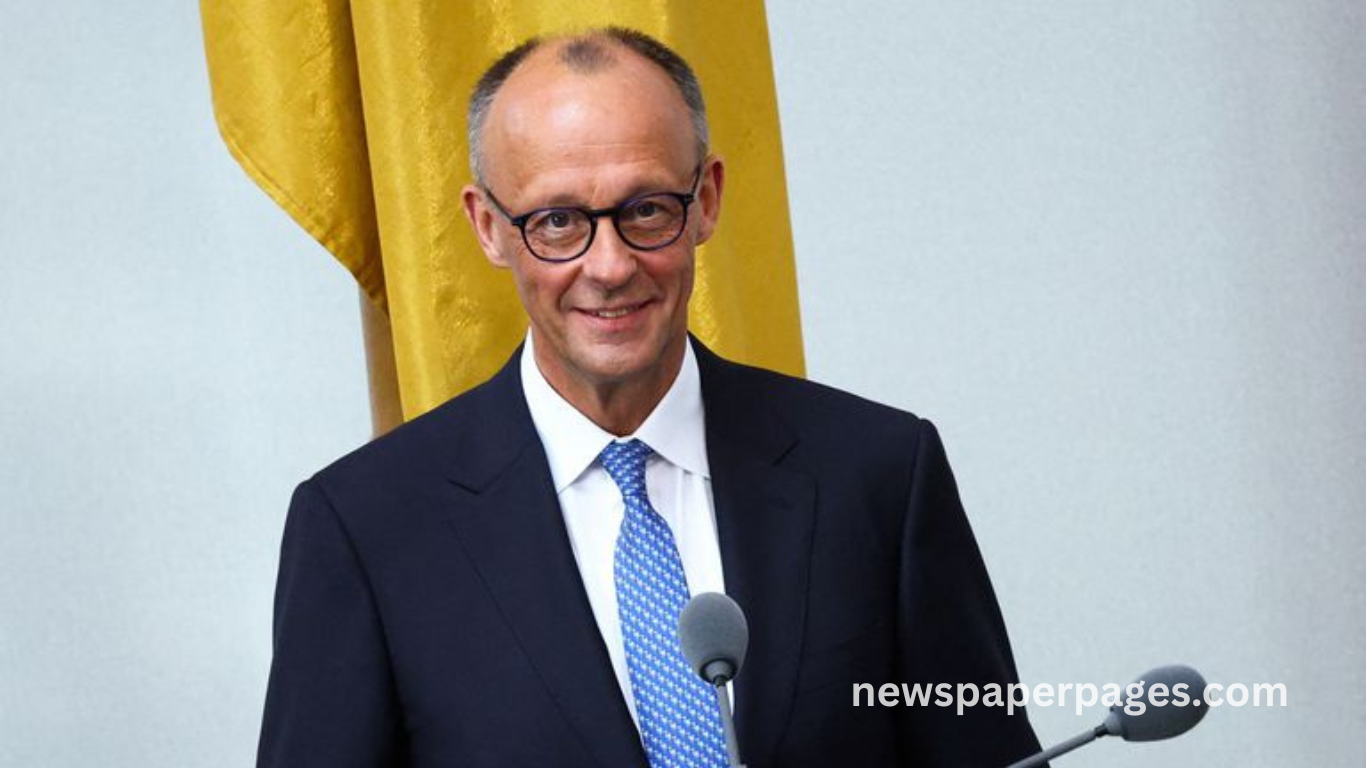Friedrich Merz has finally secured the chancellorship of Germany after years of political perseverance. Long seen as a polarizing figure within his own Christian Democratic Union (CDU) party, Merz’s path to power has been anything but smooth. His first attempt to lead the country fell short, leading many to question whether his political style and ideology could genuinely resonate with modern German voters. But persistence, shifting alliances, and a changing political landscape have now elevated him to the nation’s highest office.
However, Merz’s victory is far from a resounding mandate. The 2025 federal elections delivered a fragmented parliament, and the CDU was forced into challenging coalition negotiations. Although Merz emerged as chancellor, he now faces a fragile governing alliance and rising opposition both from within his ranks and from a resurgent left. As he takes office, many wonder whether this weakened position will define his tenure—or push him to adapt.
Merz’s Political Comeback and Second Bid for Power
Friedrich Merz was once a rising star in the CDU before being sidelined in the early 2000s. His return to front-line politics in the late 2010s marked a significant shift in Germany’s conservative leadership. After losing to Armin Laschet in the race to succeed Angela Merkel in 2021, Merz regrouped and maintained a strong presence in the Bundestag. A sharpened message, strategic alliances, and a focus on traditional conservative values shaped his second chancellor campaign.
Merz positioned himself as a clear contrast to the centrist policies of Merkel’s era. His appeal to the CDU’s right-wing and economically liberal base helped him secure internal support. Still, the road back was steep, requiring careful negotiation with party moderates and outreach to voters fatigued by coalition politics.
A Fractured Election Outcome Reshapes Coalition Dynamics
The 2025 federal elections did not deliver a clear majority for any single party. While the CDU led the vote, it fell short of a parliamentary majority, forcing Merz to build a coalition with the pro-business Free Democrats (FDP) and the environmentally-focused Greens. This alliance reflects Germany’s fragmented political landscape, where no dominant bloc can rule alone.
Balancing such ideologically diverse partners poses immediate challenges. The FDP’s push for fiscal conservatism clashes with Green demands for climate investment. Merz must now mediate policy tensions within the coalition while fending off attacks from a vocal opposition, including the resurgent Social Democrats (SPD) and the far-right Alternative for Germany (AfD).
Internal Party Divisions Undermine Merz’s Authority
Although Merz won the chancellorship, he did not do so with unified party backing. The CDU remains divided between its centrist, Merkel-era wing and Merz’s more conservative faction. Key state leaders and party veterans have publicly questioned his leadership style, warning that his hardline rhetoric could alienate moderate voters.
Read More : Make Albania Great Again – Trump Campaign Manager Chris LaCivita’s Next Act
These internal fractures have already surfaced in early cabinet selections, where Merz had to compromise on several key appointments. Maintaining unity within the CDU while leading a diverse coalition will be a constant balancing act for the new chancellor, testing both his diplomatic skill and political patience.
Policy Challenges Facing the New Government
Merz inherits a complex set of domestic and international issues. Germany’s economy, though still robust, faces inflationary pressure and energy uncertainty following the global shifts in trade and the ongoing transition from fossil fuels. The new government will also need to address mounting concerns over immigration, digital infrastructure, and defense policy in a changing European security environment.
On the European stage, Merz must navigate EU relations with a focus on German competitiveness and fiscal restraint. Domestically, voters expect action on healthcare reform, pension stability, and education modernization. These pressing challenges will define the Merz administration’s early legacy.
Opposition Parties Poised to Exploit Coalition Weaknesses
Merz’s narrow victory has energized Germany’s opposition parties, particularly the SPD and the Greens’ left-wing base. SPD leaders argue that the CDU’s shift to the right under Merz threatens social cohesion and inclusivity. Meanwhile, the AfD continues to draw support in rural and eastern regions, leveraging nationalist rhetoric and economic grievances.
These dynamics create an environment of constant political pressure. Every misstep by Merz’s government could fuel criticism and diminish public trust. As a result, Merz’s cabinet will need to maintain a delicate balance between policy ambition and coalition stability to avoid early disillusionment.
Media and Public Reaction to Merz’s Appointment
The public reaction to Merz becoming chancellor has been mixed. Some media outlets praised his tenacity and experience, while others raised concerns about his polarizing image and perceived lack of flexibility. Opinion polls suggest cautious optimism among conservative voters but skepticism among young and urban populations.
Merz’s communication strategy will be crucial. Unlike Merkel’s understated approach, Merz is more direct and assertive, a tone that could either rally support or deepen divisions. His team is already focusing on transparency and public outreach to counteract criticism and project a sense of steady leadership.
Can Merz Stabilize His Leadership?
Friedrich Merz now stands at a political crossroads. Having achieved his long-sought goal of becoming chancellor, he must quickly prove that he can govern effectively despite the inherent instability of his coalition and internal party discord. His ability to deliver results while managing ideological tensions will determine whether his chancellorship becomes a transformative period or a short-lived experiment.
Observers point out that Merz must adapt if he hopes to build a broader consensus. Bridging divides—not just between coalition partners but within his own CDU—could either solidify his authority or leave him vulnerable to future challengers from both inside and outside the party.
Frequently Asked Questions
Who is Friedrich Merz?
Friedrich Merz is a German politician and lawyer who currently serves as Chancellor. A longtime member of the CDU, he is known for his conservative economic views and his return to politics after a decade-long hiatus.
Why did Merz’s first attempt to become chancellor fail?
His first attempt failed in 2021 due to more substantial party support for Armin Laschet and lingering skepticism about his suitability to lead a broad coalition.
How did Merz secure the chancellorship in 2025?
He led the CDU to a narrow electoral lead and successfully negotiated a coalition with the FDP and Greens, allowing him to secure a parliamentary majority.
What challenges does Merz face as chancellor?
Significant challenges include managing a fragile coalition, dealing with economic uncertainty, addressing energy policy, and bridging internal CDU divides.
What is the public opinion of Merz’s leadership?
Public opinion is divided. While conservatives support his return, many view his style as too rigid or outdated for modern German politics.
How does Merz differ from former Chancellor Angela Merkel?
Merkel was known for her centrist pragmatism, while Merz favored a more traditional conservative approach with a strong emphasis on economic liberalism.
What are the priorities of the new Merz government?
Initial priorities include economic stabilization, energy transition policies, immigration reform, and improving Germany’s digital infrastructure.
Could Merz face leadership challenges within the CDU?
Yes, given the party’s internal divisions and his narrow coalition, Merz could face future leadership tests if his policies alienate key factions.
Conclusion
Friedrich Merz’s long-awaited rise to Germany’s chancellorship marks a historic moment in the nation’s political evolution. However, his leadership begins under a cloud of fragility and division. Whether he can turn a weakened start into a strong legacy remains uncertain. As Germany watches closely, Merz must prove that resilience and adaptability can overcome even the narrowest path to power.

